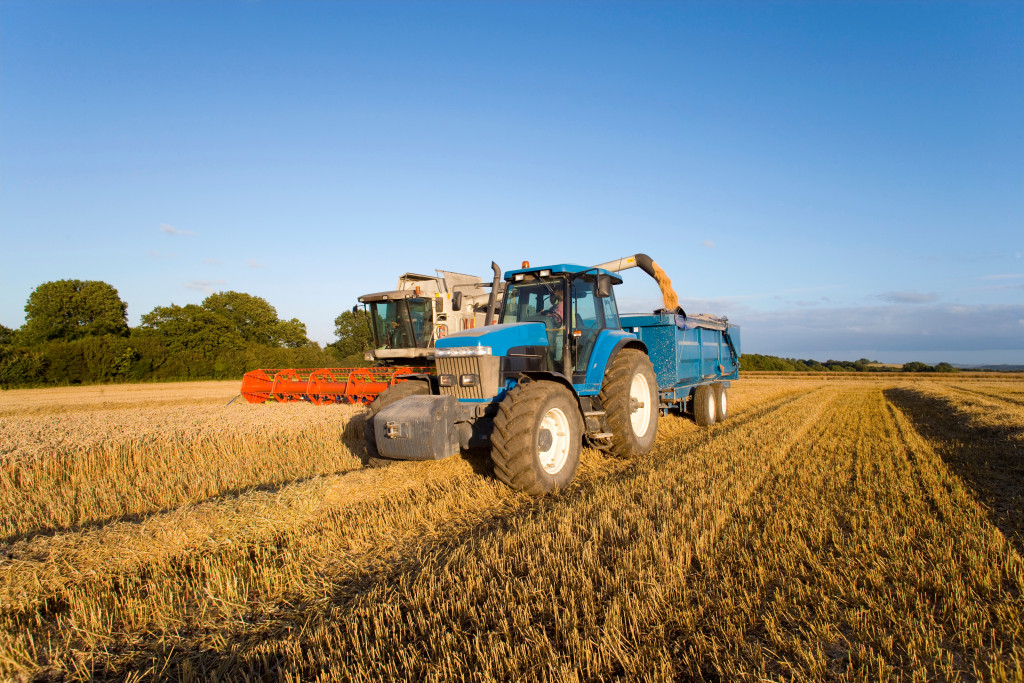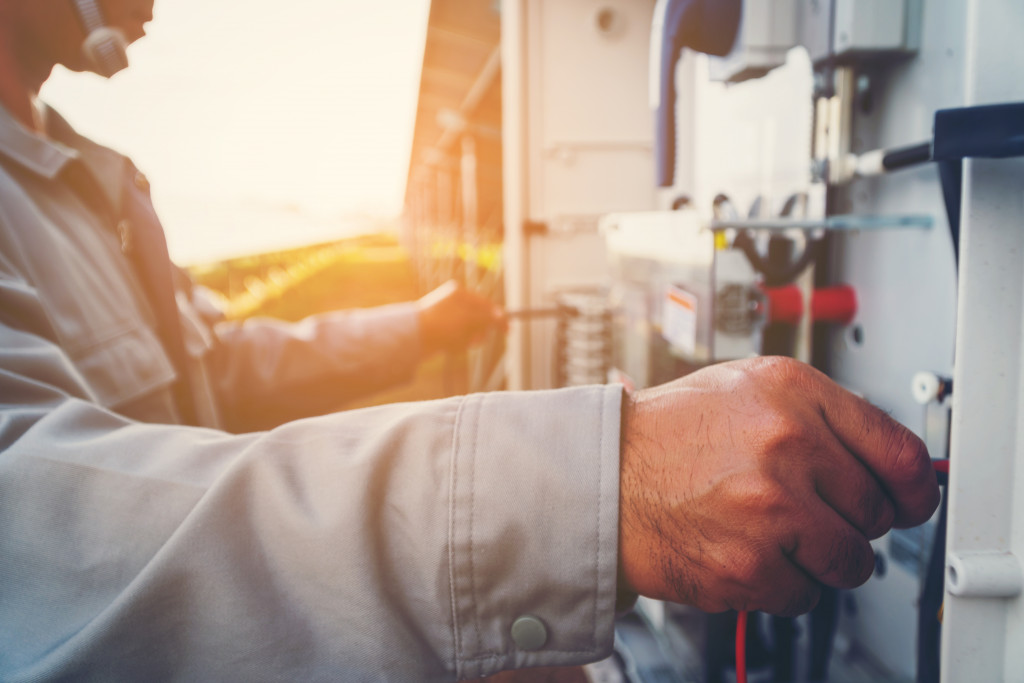- Budgeting for equipment is essential to ensure intelligent investments in the right machinery and maximize potential.
- Maintaining farm equipment can prevent breakdowns and increase productivity over time.
- Essential maintenance includes cleaning, inspections, preventive maintenance, and purchasing quality parts.
- Regular inspection routines are critical to identifying and solving potential issues before they become serious.
Heavy equipment is essential to the success of the agricultural industry. The ability to efficiently and cost-effectively cultivate, harvest, and transport crops are primarily thanks to large machinery. From tractors and combines to harvesters and transplanters, modern farms heavily depend on these machines for their daily operations.
The benefits of using heavy equipment for farming operations cannot be overstated. With precise precision and accuracy, farmers can increase yields while reducing costs associated with labor and other resources, resulting in improved profitability. Additionally, mechanized farming helps to conserve natural resources such as water, soil nutrients, and energy by relying less on manual labor. In fact, according to a report from the International Food Policy Research Institute (IFPRI), over 90% of global agricultural production is dependent upon machines powered by fuel or electricity.
The economic impact of mechanization in agriculture cannot be ignored either. According to a study by the United States Department of Agriculture (USDA), mechanized farming significantly increases net farm income across all types of farms. The overall rate of return on capital invested in machines was estimated at 18%, far higher than that expected from alternative investments such as land or livestock investment. This means more money remains within the local economy due to increased productivity and efficiency gains achieved through mechanization.
Caring for your machines will be vital because it can help your farm stay competitive. Here are a few tips to help you:
Budgeting for Equipment
Creating a budget for heavy equipment is essential for any agricultural operation. A well-crafted budget will ensure that farm owners are making smart investments in the right machinery and can maximize the potential of their process.
Farm owners should consider short-term and long-term needs when creating a budget. Short-term goals may include purchasing used machinery to fill immediate needs on the farm. In contrast, long-term goals might concentrate on significant additions such as a new combine harvester or tractor. Additionally, it’s essential to consider all costs associated with the machinery, not just its purchase price. Maintenance, fuel, and labor costs must all be factored into the budget to be effective.
To keep costs down, looking for ways to purchase used equipment whenever possible is beneficial. Used farming machines often have lower purchase prices than their newer counterparts, allowing farms to get work done efficiently and effectively. It is also helpful to consider buying equipment from trusted sources or purchasing extended warranties that could cover repairs or maintenance over an extended period. Finally, farmers should consider leasing or renting options when appropriate to minimize upfront capital expenditures and spread out payments over time.
Performing Maintenance
Maintaining farm equipment is a must for any agricultural operation. Regular maintenance helps prevent unnecessary breakdowns and extends the life of equipment, resulting in improved productivity and reduced costs over time.
Essential maintenance should include the following:
Cleaning
Cleaning and maintaining farming equipment is essential to ensure the longevity of each machine. Keeping the machinery clean helps prevent dirt, dust, and other debris from accumulating on internal components and causing potential problems. Additionally, it can help farmers detect any possible issues that may arise before they become more serious.
Preventive Maintenance
Preventive maintenance is critical to keeping agricultural machinery running efficiently and effectively for as long as possible. Regular inspections should be performed on each machine to identify potential problems that could compromise its performance or reliability. This includes checking for loose connections or parts, inspecting all visible wiring and hoses for signs of wear or damage, looking for any signs of corrosion on metal components, checking fluid levels, and testing all safety features regularly.
Purchasing Parts
Having access to quality parts and supplies is vital when it comes to keeping agricultural equipment running correctly. Farms should make sure they purchase parts from reputable sources that provide high-quality products at competitive prices to get the most out of their investments—additionally, researching different options before a purchase can save money while giving reliable components for repairs or upgrades. Your water tanks will be for everyday use, so you might have to invest in poly tank bulkhead fittings to ensure you can use them.
Making Repairs
When a problem arises with farming machinery, it is essential to take action as soon as possible to minimize downtime and maximize productivity. Repairing machines quickly can help ensure proper operation over time, translating into more significant savings due to reduced costs associated with replacements or increased efficiency losses caused by substantial downtime due to breakdowns or malfunctions.
Creating Inspection Routines
Maintenance will always be crucial to keeping farm equipment in good working order. Creating regular inspection routines and sticking to them is essential for identifying and solving potential issues before they become serious. Inspections should include checking for proper connections, testing safety features, looking for signs of corrosion, inspecting wiring and hoses, checking fluid levels, and examining any parts that may need replacement over time.
Final Thoughts
Knowing how to care for your machines and keep them in optimal condition is fundamental to any successful agricultural operation. Budgeting wisely, performing regular maintenance, purchasing quality parts, making repairs as needed, and creating inspection routines are all critical components of keeping farming equipment in top shape. Following these tips can help maximize efficiency and productivity over time while reducing costs associated with replacements and downtime due to breakdowns or malfunctions.



